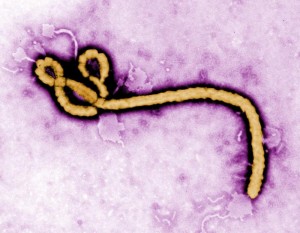In a World Health Organization (WHO) update Friday, the Ministry of Health (MOH) of Guinea reports the confirmation of to additional Ebola Virus Disease (EVD) cases and one fatality since Tuesday. This brings the cumulative numbers in the west African country to 236 clinical cases of EVD, including 158 deaths.

Progress to bringing this outbreak to an end has been moving in the right direction in recent weeks, according to one UN official. There are signs that the outbreak’s spread is slowing, but it is not over yet, Jean-Bosco Ndihokubwayo, who is coordinating the U.N. health agency’s response in Guinea, said Friday.
“The situation has improved dramatically in the last two weeks, but we’re not there yet,” he said. For more infectious disease news and information, visit and “like” the Infectious Disease News Facebook page.
Part of the improvement has been attributed to “social mobilization”. Outreach to the community has been key, albeit difficult according to one Red Cross volunteer, “It is difficult to make people here understand, as many of them can neither write nor read. Therefore, we do talk to them in simple phrases and in their local languages,” explains Soumah Mouctar, one of the 25 Red Cross volunteers who are helping to spread the word in the capital.
The outreach includes “foot-soldiers” going into the marketplaces and other places where there is busy human traffics and putting out the message via loudspeakers or megaphones, “Our country has been hit by Ebola, a dangerous viral disease. The virus is dangerous, but you will not get infected if you follow our recommendations. Here is what you can do to protect yourself and your family.”
In addition, TV and radio spots in French and six local languages are being broadcast repeatedly before and after the news through national and local TV and radio stations. In addition, 23 rural radio stations broadcasting across the country are running spots and “micro-programmes” in local languages.
For an Ebola outbreak to be declared “over” by WHO, it requires two “incubation periods” equaling 42 days after the last known infection. For more on Ebola, watch the following MSF video.

